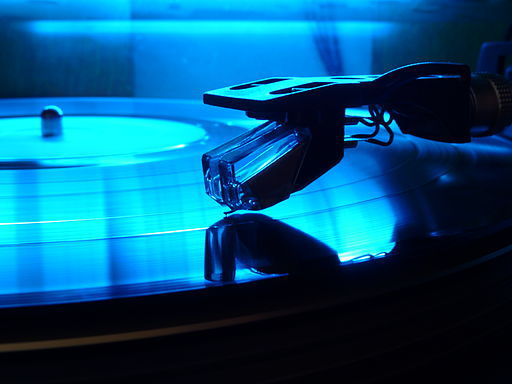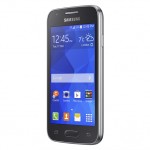
Just like it is in fashion circles, certain technology trends never entirely fade to black, with some even seeing a full-fledged revival.
Take vinyl music records, for example. While digital music streaming services such as Pandora, Spotify and iTunes Radio are now seen as harbingers of the music industry’s future, the appeal of vinyl in all its physical form has been on the rise in recent years.
If sales figures are any indicator, the surge in vinyl sales in Australia, the U.K. and North America over the past few years seems to point to the format’s viability as a music delivery platform once again.
To be honest, vinyl records can hardly be said to have ever gone the way of the Dodo. For one thing, many indie labels have been releasing new albums on vinyl records, even before the start of the so-called ‘vinyl revolution’.
As existing vinyl fans have all the while stuck to the analogue music format, the growth of vinyl sales is likely to have come from post-adopters – music consumers who were born and raised in the digital age – who ‘migrated’ over and embraced vinyl.
But why forgo the convenience of accessing digital music anytime and anywhere on a myriad of devices for an archaic technology that some consider unwieldy, sonically inferior and inherently fussy?
Indeed, when Sony and Philips co-developed the Red Book CD format in 1980 (so named because its technical specifications were outlined in a book with red binding), it was done with the purpose of fixing vinyl’s perceived flaws: pop and clicks, warping, and short playing time.
Curiously, then, one of the most salient arguments raised by some of these post-adopters I have spoken to was in relation to the format’s prowess in sonic reproduction.
I had the opportunity to visit one such friend’s home and we fired up his music playback system that had both analogue and digital sources hooked up.
With our best attempt at minimising the number of variables, we switched back and forth between the same sections of The Raven That Refused to Sing by progressive rock giant Steven Wilson — who is known for his attention towards a recording’s mixing and mastering processes — with the expectation that the digital version would be indistinguishably close to its vinyl counterpart given Wilson’s credentials.
Now is perhaps a good time to declare myself as a fellow post-adopter. By no means, however, do I have golden ears – not even close. And yet there were appreciable differences, with more ‘air’, space, and instrument separation with the vinyl edition, especially during a particularly frenetic segment pierced with a blazing guitar solo that I still remember till now. With both formats juxtaposed, digital music seems technically clearer, but does so by sacrificing a sense of dynamism, of ‘life’.
That said, the sonic appeal of vinyl isn’t the only thing that attracts post adopters. In terms of product tangibility, vinyl trumps every other format out there, especially the streaming services that are dominating the music industry’s landscape.
The sheer size and weight of the entire vinyl package (not to mention those with two or even three records inside) simply means one is able to snag more bang for the buck. Of course, being able to pore over intricate album art details on its 12×12 canvass only comes to further imbue vinyl with the notion of tactility. Now, try doing that with an iTunes gift card.
But there exists a yet more abstract conception of vinyl that I believe captivates us post-adopters, specifically that of slow-paced and deliberate rituality.
In contrast to the speed and convenience of modern music delivery methods, the inherent fussiness of vinyl – the need to clean the record, adjust cartridge angle and so on – demands commitment and involvement. It’s somewhat refreshing, almost as if it were a reaction against the fast-paced lifestyle – a sanctuary, if you will, where a deeper connection with one’s music is established through the tinkering that’s required just to spin the record properly.
I cannot speak for others here, but there is an attraction I feel towards music being an activity in its own right and therefore devoting my attention to it, rather than it functioning as a backdrop and essentially a means to an end, like study music. With vinyl, music is the end.
At the end of the day, however, sound is only one facet that draws individuals to their audio format of choice. And even that is subjective, for perceptions formed from listening, in contrast to those of viewing, are arguably subject to more biases and prejudices, since there is often a lack of sonic reference points that are universally observable.
Even if we may not always agree on vinyl’s audio fidelity vis-à-vis that of digital, there are still many other factors that draw digital natives towards the vinyl format. Those that I mentioned earlier certainly did for me.
That said, these are my opinions as a recent post-adopter of vinyl. If you too have made the jump, I’d love to hear your reasons for doing so. And if you are firmly rooted in the digital end of the spectrum, it will be great to hear yours as well.







For me, it’s a mix of nostalgia, and a rejection of modern (read: digital) norms. Music has been a huge part of my life going back to the days of recording songs from the radio on cassette, and then going through the ritual of pause/rewind/play to write the lyrics down (who needs a Google?). As a kid born in the late 70’s, my first musical experiences were through older formats (vinyl, 8-track, cassette), and I remember some of the albums my mom had in the house as a kid (Stevie Wonder, Michael Jackson, Dan Hartman (ha!)). So as someone who has always ‘collected’ music in all its forms, coming back to vinyl just feels so natural. Also, as you have stated, music has moved back from being something in the background to something I experience when I play records. I’ve also always been a fan of ‘albums’ (vs. songs) so listening to an LP in it’s entirety just makes sense to me, and also makes me really appreciate a time when musicians/artists made albums instead of vying for the singles crowns on iTunes. There are still plenty of artists that do of course, and I think the Vinyl resurgence can also be credited with keeping a certain segment of artists honest and constantly thinking about the album experience vs. just stringing a bunch of songs together as a release. I’ll also add (just as the writer stated), some of these packages are just amazing. I recently paid $100+ dollars for an album, (i’m probably in the minority of folks that would do that) but had no regrets once I saw the packaging because I felt like I bought a piece of art, complete with a soundtrack. No digital download can match that (save maybe for Beyonce’s ‘visual album’ release, but even her vinyl package that was just release added beautiful artwork to the visual album, and included a DVD and CD of it to boot!)
Lastly, for me, I’ve got a finite (but growing) vinyl collection, as I’ve started collecting from scratch just about a year ago. That said, even selecting music has become an experience, as I’ve got a limited amount of records, and I have to put real thought into what i’m selecting and how it fits my state of mind. I also have hundreds of CD’s, a 160GB ipod full of music (at pretty high quality), and a subscription to spotify,and none of those ever come close to matching the feeling I get when I’m selecting what album goes on my Turntable. Having too many options, or the entire musical spectrum at your hands became a detriment to my relationship with music, and having a finite collection has reinvigorated it. I also giddily look forward to when I’ve got a new addition coming in the mail, or trips to record stores, just the way I remember I would as a teenager and young adult when new release came out and I’d trek to stores on the day of, a day before, or the weekend before and talk the owners into selling me a copy in advance :).
You have raised quite a few good points all of which I am in agreement with. Indeed, a lot of the, shall we say “commercially driven”, artists tend to arguably place undue emphasis on chart toppers and relegate their album as a conceptual whole to a lower rung on the hierarchy. You might be right in contending that their releasing of albums on the vinyl format could help them keep in mind the album experience as a totality. I have even heard (but am not sure of its accuracy) that some artists specially change the song orders on the vinyl edition, such that the more instrumentally and sonically dense ones are not on the inner grooves. I like your observation that vinyl is often “a piece of art, complete with a soundtrack”, and it certainly only adds to the comprehensive experiential aspect of the format. There is even much academic literature that speaks of album art as representative of the artists’ respective ethos, and what better way to express it than via a 12×12-inch canvas?
Vinyl records were a part of my childhood and will always have a place in my heart. While I agree with with the writer about a certain level of connectedness a listener achieves through the tactility tactility. For me it is a deeply personal and nostalgic experience and ritualistic process of first selecting what to listen to, carefully taking it out of the jacket, placing the needle on the record and maybe adjusting pitch if need be. And maybe if you’re listening with a friend or 2 possibly lighting up and not just passing the doobie but also the album cover to each take a turn looking at it and appreciating it. My vinyl collection was given to me by my music obsessed uncle so many of my records have very deep sentimental value to me and always will. I remember grabbing out the vandals’ peace through vandalism and telling him to play urban struggle as well as many others that are now mine. I would be remiss if I didn’t mention the collectability of the records themselves as nearly everything my uncle gave me is first press and all highly collectable and sought after. By audiophiles.
Certainly, the ritualistic process that surrounds vinyl playback you mentioned was pretty much the sole reason that urged me to give the analog format a shot. Back when I was younger and had started buying my own CDs, I used to pop them into a VCD player, plug my crappy earphones into the TV, and simply allow myself to be immersed whilst staring out the window. In a bid to recreate those musical experiences of yore, vinyl seemed to be the logical conclusion, what with being able to extend that experience even further and deeper through the format’s rituals.
And yes, that “first press” status that all vinyl lovers seek to attain; your collection sounds like gold!
Totally agree with you. I’m a metal music fan and there’s some albums that I don’t want previously but when I heard it on Vinyl it made me want to buy that album in that format because the sound is very clear compare to cds or tape that I have in that format so I guess it’s the vinyl itself that made the quality of the music more enjoyable.
Right on, I primarily listen to metal as well, and I’m glad that most, if not all, of the new albums are being released on wax. The crack of the snare drum on a record I recently got was just so much more viscerally satisfying relative to its CD version. That said, not all vinyl are made equal, with some pressed with the same mastering as the CD counterpart, resulting in no sonic improvements. To my knowledge, however, many records released these days (regardless of genre) tend to have different masterings for vinyl and non-vinyl formats, with that for the former being more dynamic. Such a practice does reek of an elitist attitude, but at least it constitutes one more reason to track down those vinyl releases!